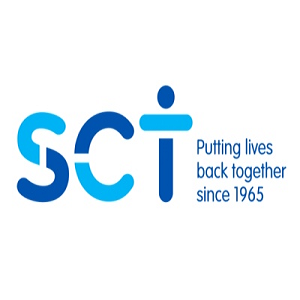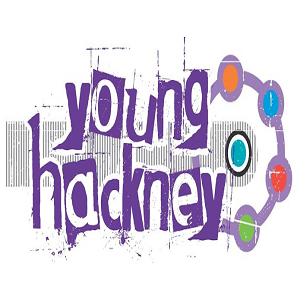Drug & Alcohol Rehab in Tower Hamlets

How Does Rehab Work?
The process of rehabilitation helps individuals regain their mental health and their overall quality of life. Rehab involves patient focused therapy in which behaviours involving drug and alcohol dependence are targeted, coping strategies introduced, and therapy services provided. Individuals are taught how to avoid relapse with the option of entering a residential or an outpatient programme. Inpatient rehabilitation requires that individuals remain at a chosen facility or recovery centre full-time. Outpatient rehab programmes have clients maintain their work commitments while attending in counselling sessions and group work.
What Happens During Residential Rehab?
Rehab is the first step towards recovery and sober living. It can be difficult to work on quitting addictive behaviours on your own but with the support of professional intervention, a substance free life can be achieved. You may have concerns about the unknown; however, a breakdown of the process can help put your mind at rest.
Rehabilitation starts with an assessment performed by an experienced medical professional. The goal is to investigate your history with substance use, and whether pre-existing medical conditions are present. This includes any comorbidities such as mental health disorders that require specialised treatment.
Detox is an important phase of a recovery programme. It involves the safe removal of drugs and/or alcohol from the body. When detox is done under medical intervention, withdrawal symptoms can be monitored, and its severity managed. This can significantly improve the chances of success and minimise relapse.
Rehab includes meeting with a therapist for private & group sessions, participation in skill building activities as with an inpatient or residential rehab, or group meetings that are common with outpatient 12 Step programmes. We look at the various phases of rehab in further detail.
1. Assessment

A medical assessment is performed before treatment to identify medical history, and use over time. If you are seeking residential treatment, an admissions team will give you a telephone assessment. An assessment by telephone will help the treatment centre deliver a tailored treatment programme. It can also help medical professionals to support the client during detox.
Should you or someone you love require help to overcome dependence, it starts with an individual assessment. The purpose is to determine the right therapeutic approach for the management of addictions and possible comorbidities.
2. Detox

Detox involves the cessation of drugs and alcohol from the body. With professional assistance, it is safely facilitated and is most commonly monitored in a private rehab because of risks associated with withdrawal symptoms.
A medical detox is often recommended because it allows medical staff to oversee withdrawal symptoms that may develop. Withdrawal from drugs/alcohol can be uncomfortable and relapse may occur if not managed within a treatment centrefacility. Medically assisted detox can ease the process by supporting clients and providing detox medication to reduce withdrawal symptoms. During an individual assessment, a professional will determine which approach is best suited to a comfortable detox and entry into therapy thereafter.
3. Therapy

Once a medical assessment and detox are completed, individuals will start therapy. Therapeutic intervention will consist of inpatient or outpatient services which depend on the your budget and life commitments. Some of the most common therapies you can expect at a treatment centre include traditional one-on-one counselling, trauma counselling and skill development, as well as group therapy sessions.
Step by Step Process for Residential Rehab
To understand your medical and mental health history.
Arrange a suitable date to begin your journey to recovery.
Begin the managed withdrawal process from substances including alcohol.
To understand the root cause of addiction and how to overcome it.
Aftercare is provided to help manage the risk of relapse.
To help heal the wounds that addictive behaviour has caused others.
Find your Nearest Rehab Centre in Tower Hamlets
The nearest rehab centre is Step By Step Recovery – Drug & Alcohol Rehab London.
Address: Step By Step Recovery – Drug & Alcohol Rehab London, 5-7 Cranwood St, London EC1V 9EE, United Kingdom
Call 0333 4444 432 to discuss your alcohol or drug rehab requirements and any other questions you may have about the process of residential rehab.
Outpatient Addiction Services in Tower Hamlets
Inpatient or outpatient treatment for dependence can be determined by your budget requirement & individual circumstances. Nevertheless, it is an individual process that requires commitment and awareness to succeed. To help you understand these different options, we look at outpatient addiction services compared to residential rehab.
When you enter into an outpatient service, you will be expected to meet with a therapist, support counsellor, or group worker once or twice every week. Rather than stay at the residence, you can continue to attend work commitments and care for your family while you receive treatment for addiction.
If you have decided that outpatient treatment is an option you want to follow, the next step is to find a suitable programme offered by a cqc registered company or charity.
NHS Free Addiction Services in Tower Hamlets
The Benefits of Outpatient Services
Private outpatient plans are tailored to the individual’s needs. The purpose is to provide optimal standards of care and intervention for recovery from dependence. – Outpatient support is considered flexible because individuals with family/work commitments may continue to manage these areas of life while attending weekly or twice weekly counselling sessions. – It is also less expensive in comparison to residential treatment services.
The Challenges of Outpatient Services
While outpatient play an important role in accessible addiction treatment, it is also linked with a higher relapse potential. While free outpatient services do exist through the NHS or UK based charities, waiting times are to be expected and treatment tends to be more generic.

How Much Does Rehab Services Cost in Tower Hamlets?
You can expect to pay between £1500 – £4000 per week for residential rehab. If you cannot afford a private addiction plan, you can rely on free and more economical recovery options to deal with your drug or alcohol issues. There are many charities that assist individuals with free and affordable services within.
The NHS and charities such as Turning Point will require a self-referral to be considered for treatment. You can also find many other affordable services (such as private counselling) or free therapies and community supported programmes for those with drug or alcohol dependencies. These groups include AA or Alcoholics Anonymous, Narcotics Anonymous, and Cocaine Anonymous.
Support Groups in Tower Hamlets

Stepney Mile End Hospital
Mile End Hospital, Burdett Centre, Bancroft Rd, Stepney Bus: 25. Tube: Mile End or Stepney Green E1 4DG

Poplar Nadzieja (Hope) Polish Spoken
The venue next to the Church of St Josef & Mary, entrance from Canton St E14 6EZ

Poplar
Salvation Army, Kerbey St, off East India Dock Rd. Bus: 15, 115, D6. DLR: All Saints. E14 6AJ
The Pros and Cons of Seeking Treatment in Your Local Area
Pros
1. You are familiar with the area which may provide a layer of comfort/safety.
2. Loved ones can easily travel to visit or are close by.
3. You may save on the costs of travelling long distances for addiction treatment, or free services may only be offered in your area of residency.
Cons
1. A local environment means access to drug dealers or other triggers. This is more of an issue if you choose outpatient programmes.
2. Failing to consider locations outside your area could equate to missed opportunity for more valuable and rewarding programmes.
3. Addiction treatment programmes that are nearby don’t always offer the best standard of treatment.
In the event you are unsure about a particular addiction treatment service, you can look to the CQC website for more information including a rating of that service.



